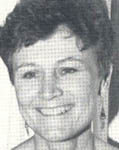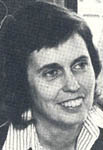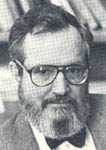First Glance
002
If you think you know who Mary Magdalene was, chances are you’re wrong. She was not the “woman in the city who was a sinner” (Luke 7:37). Nor was she the woman caught in the act of adultery (John 7:53–8:11), nor the Samaritan woman said to have five husbands and to be living with a man not her husband (John 4:8–29). She was actually a leading participant in some of the principal events of Christian faith and possibly a source of apostolic authority for women. In “How Mary Magdalene Became a Whore,” Jane Schaberg redresses a longstanding slander and restores the Magdalene to her rightful place of dignity in biblical history.

Schaberg is professor of religious studies at the University of Detroit-Mercy, where she has taught since 1977. A specialist in the New Testament, she has most recently published The Illegitimacy of Jesus: A Feminist Theological Interpretation of the New Testament Infancy Narratives (Cross-road, 1990) and has contributed “The Gospel of Luke” to The Women’s Bible Commentary (Westminster/John Knox, 1992). In her spare time, she enjoys travel and horseback riding.
Opposition to slavery radicalized many women in the 1800s, especially when they discovered that some of their strongest critics were abolitionist males, not proslavery groups. Public speaking, the men said, took woman outside her “proper sphere.” When the women persisted, belligerent ministers shouted them down with Scripture passages. In response, women scholars began the first feminist examination of the Bible. Were traditional translations and understandings accurate? Pamela J. Milne explains how such scholarship changed through succeeding generations in “Feminist Interpretations of the Bible: Then and Now.”

Milne, an associate professor of Hebrew Bible at the University of Windsor in Ontario, wrote “Eve and Adam—Is a Feminist Reading Possible?” BR 04:03. Among her forthcoming work is an introduction and annotation for the Book of Daniel in The NRSV: Harper’s Study Edition (HarperSanFrancisco) and “The Patriarchal Stamp of Scripture,” in Genesis, volume 1 of the Feminist Companion to the Bible Series (Academic Press). In addition to Hebrew biblical literature and feminist exegesis, Milne has a special interest in employment equity and the status of women.
“If the Bible’s So Patriarchal, How Come I Love It?” Phyllis Trible asks in this issue. While some feminist Bible scholars believe the biblical text is irredeemably misogynist, Trible seeks to discover the text’s “other voices,” the remnant of nonpatriarchal material that is often preserved in the Bible’s conflicts and contradictions. To demonstrate her method of reinterpretation, Trible focuses on the Garden of Eden story, giving an exegesis that sees the tale as a critique of patriarchy.

Since 1979, Trible has served as Baldwin Professor of Sacred Literature at Union Theological Seminary in New York City. She has also taught at Wake Forest University and at Andover Newton Theological School, where she was the Hitchcock Professor of Hebrew Language and Literature from 1971 to 1979. Her most recent book, Texts of Terror: Literary-Feminist Readings of Biblical Narratives (Fortress, 1984), was reviewed in Bible Books, BR 01:01. Trible’s previous article for BR was “Bringing Miriam out of the Shadows,” BR 05:01.
The topic of women and the Bible is not this issue’s only focus, however. Presented here also is the second of three installments of “Frank Moore Cross—An Interview.” In the first part (“Frank Moore Cross—An Interview,” BR 08:04), Cross described his views on the origins of the ancient Israelites and on the sometimes conflicting literary strands that make up the Bible. In the continuation of this insight-filled discussion, Cross elaborates on the religious outlook of the earliest Israelites. Utilizing his expertise in a number of academic disciplines, Cross discusses how the Israelites’ views of God evolved over time and how those views 003differed from other Near Eastern religions. In the course of the interview, Cross describes his theory of epic—a type of literature that combines myth and history and which Cross believes is crucial to understanding the complexities of the Bible.

Cross retired this spring as Hancock Professor of Hebrew and Other Oriental Languages at Harvard University. He serves on BR’s Editorial Advisory Board and is the author of numerous books and articles, including The Ancient Library at Qumran and Modern Biblical Studies (Baker Book House, rev. ed. 1980) and Canaanite Myth and Hebrew Epic (Harvard Univ. Press, 1973).
If you think you know who Mary Magdalene was, chances are you’re wrong. She was not the “woman in the city who was a sinner” (Luke 7:37). Nor was she the woman caught in the act of adultery (John 7:53–8:11), nor the Samaritan woman said to have five husbands and to be living with a man not her husband (John 4:8–29). She was actually a leading participant in some of the principal events of Christian faith and possibly a source of apostolic authority for women. In “How Mary Magdalene Became a Whore,” Jane Schaberg redresses a longstanding slander and […]
You have already read your free article for this month. Please join the BAS Library or become an All Access member of BAS to gain full access to this article and so much more.
